calsfoundation@cals.org
Glen Campbell (1936–2017)
aka: Glen Travis Campbell
Glen Travis Campbell was a commercially successful and critically acclaimed entertainer whose career lasted more than fifty years. As a guitarist, Campbell appeared on recordings by a diverse range of artists, including Elvis Presley and Frank Sinatra. As a singer and solo artist, Campbell sold millions of recordings and earned many awards. He also starred in films and hosted his own television programs.
Glen Campbell was born on April 22, 1936, in the Billstown community, near Delight (Pike County). He was one of twelve children born to the farming family of Carrie Dell Stone Campbell and John Wesley Campbell. Many of his relatives were musicians, and young Campbell soon developed an interest in singing and playing. He received his first guitar at age four, performed in public by age six, and made occasional appearances on the local radio station.
The Campbell family moved first to Houston, Texas, and then to Albuquerque, New Mexico, where teenaged Campbell began performing in nightclubs. Campbell dropped out of school in the tenth grade to spend more time on music. In 1956, he joined the Sandia Mountain Boys, a local band led by his uncle Dick Bills. Campbell stayed with the group until 1958.
In 1958, Campbell formed his own band, Glen Campbell and the Western Wranglers. In 1960, Campbell disbanded the group and moved to Los Angeles, California. He hoped to establish himself as a solo performer but found himself instead to be a sought-after studio musician and guitarist. He worked for a year with the instrumental rock group the Champs (of “Tequila” fame) before recording his first solo record in 1961. “Turn Around, Look at Me,” recorded for Crest, was a minor hit and led to a Capitol Records contract for Campbell in 1962. Campbell’s first single for Capitol, “Too Late to Worry—Too Blue to Cry,” was more successful. Nonetheless, Campbell’s solo career floundered for several years.
As a session musician, however, Campbell established himself as one of the premier guitarists of the era. He became associated with the “Wrecking Crew,” as the group of leading Los Angeles studio musicians was known. The group included drummer Hal Blaine and keyboardist Leon Russell. With or without the Wrecking Crew, Campbell played guitar for sessions by producer Phil Spector, as well as on recordings by leading performers including Elvis Presley, Dean Martin, the Mamas and the Papas, Ricky Nelson, and Bobby Darrin. His guitar playing is featured on Frank Sinatra’s “Strangers in the Night,” the Monkees’ “I’m a Believer,” and many other hits. Campbell took a position with the Beach Boys from 1964 through 1965, playing guitar and singing harmonies as a temporary replacement for Brian Wilson.
After years backing other artists, Campbell finally realized the individual success he sought. His 1967 recording of John Hartford’s “Gentle on My Mind” entered the Billboard Top 40 and earned Campbell two 1968 Grammy Awards for both Best Country Vocalist and Best Contemporary Vocalist.
Campbell’s popularity soared after “Gentle on My Mind,” and he produced a string of hit songs over the next ten years. He won three more Grammys for his 1968 hit “By the Time I Get to Phoenix.” Hits continued through the 1960s and 1970s with “Wichita Lineman,” “Galveston,” “Rhinestone Cowboy,” and “Southern Nights.”
Campbell’s entertainment success was not confined to music. His early groups had made occasional television appearances, but Campbell’s guest spots on The Smothers Brothers Comedy Hour opened the door to television and film stardom. Campbell filled in as a summer replacement for the canceled Smothers Brothers’ show in 1968 and was signed to his own CBS television program in 1969. A variety program, The Glen Campbell Goodtime Hour, ran from 1969 through 1971.
Although Campbell had only a few film roles, some were memorable. His appearance in the 1969 John Wayne film True Grit garnered Campbell a Golden Globe nomination for Best Newcomer. In 1970, Campbell played the title role in the feature film Norwood. Both films were based on novels by Arkansas author Charles Portis.
Campbell continued to enjoy chart success through the late 1970s. Among his more than seventy albums are several gospel albums recorded in the 1990s, one of which—A Glen Campbell Christmas—earned a Dove Award in 2000.
Campbell was married four times. He and his first wife, Diane Kirk, were married in 1954; they had one child before divorcing in 1959. On September 20, 1959, Campbell married Billie Jean Nunley; they had three children before divorcing in 1976. Campbell then married Sarah Davis, the ex-wife of country singer Mac Davis, on September 3, 1976; they had one child and divorced in December 1980. During the early 1980s, a public affair with singer Tanya Tucker made Campbell the subject of tabloid headlines. In 1982, Campbell married his fourth wife, Kimberly Woollen; they had three children.
In 1994, Campbell published his autobiography, Rhinestone Cowboy. Campbell was a first-year inductee into the Arkansas Entertainers Hall of Fame in 1996, and was inducted into the Country Music Hall of Fame in 2005. In August 2008, Campbell released a new album, Meet Glen Campbell. His final album of original material was Ghost on the Canvas (2011). On June 22, 2011, Campbell made public that he had been diagnosed with Alzheimer’s disease; he began a farewell tour in 2012. Campbell received a lifetime achievement award from the Arkansas Entertainers Hall of Fame in 2013, the same year he released See You There, which consisted of re-recordings of his material from the 1960s. Campbell and his family were awarded the inaugural Glen Campbell Courage Award by the Alzheimer’s Association in 2014.
In March 2014, Campbell’s family moved him to a Alzheimer’s care facility. A documentary titled Glen Campbell: I’ll Be Me was released in 2014, covering his struggles with Alzheimer’s. In 2015, Glen Campbell and Julian Raymond were nominated for the Academy Award for Best Original Song for “I’m Not Gonna Miss You,” from the documentary, which covers his farewell tour; the same song also won Campbell a Grammy. Campbell released his final studio album, Adiós, in June 2017; Rolling Stone described the album as “a loving selection of handpicked songs mostly comprised of personal favorites Campbell has never before had the chance to record.”
Glen Campbell died on August 8, 2017. He is buried in the Campbell Cemetery in Billstown.
For additional information:
Brandon, Phyllis D. “Glen Travis Campbell.” Arkansas Democrat-Gazette, December 12, 1999, pp. 1D, 10D.
Campbell, Glen, with Tom Carter. Rhinestone Cowboy: An Autobiography. New York: Villard, 1995.
Campbell, Kim. Gentle on My Mind: In Sickness and in Health with Glen Campbell. Nashville, TN: Nelson Books, 2020.
Cochran, Robert. Our Own Sweet Sounds: A Celebration of Popular Music in Arkansas. 2nd ed. Fayetteville: University of Arkansas Press, 2005.
“Glen Campbell: I’ll Be Me.” Internet Movie Database. http://www.imdb.com/title/tt2049586/?ref_=fn_al_tt_1 (accessed March 2, 2022).
Hartman, Kent. The Wrecking Crew. New York: Thomas Dunne, 2012.
The Rolling Stone Encyclopedia of Rock & Roll. 3rd ed. New York: Fireside, 2001.
Terry Buckalew
Delta Cultural Center
Staff of the Encyclopedia of Arkansas History & Culture
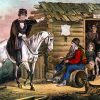 Arts, Culture, and Entertainment
Arts, Culture, and Entertainment Divergent Prosperity and the Arc of Reform, 1968–2022
Divergent Prosperity and the Arc of Reform, 1968–2022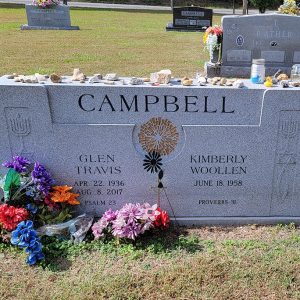 Campbell Gravesite
Campbell Gravesite 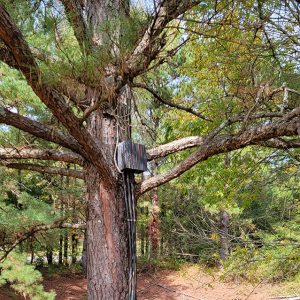 Campbell Gravesite Loudspeaker
Campbell Gravesite Loudspeaker 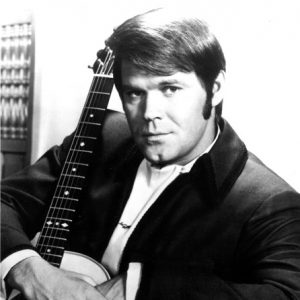 Glen Campbell
Glen Campbell 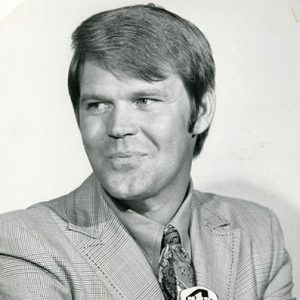 Glen Campbell
Glen Campbell 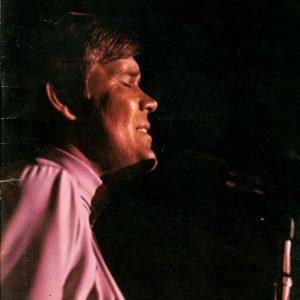 Campbell Concert Souvenir Book
Campbell Concert Souvenir Book 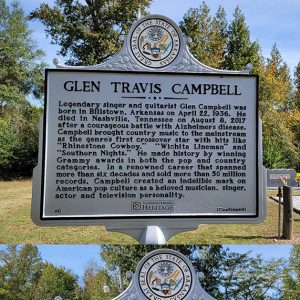 Glen Campbell Markers
Glen Campbell Markers 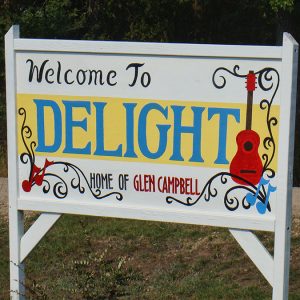 Glen Campbell Sign
Glen Campbell Sign 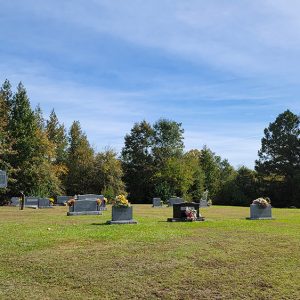 Campbell's Cemetery
Campbell's Cemetery 



A superb musical talent whose touch is felt on so many hit songs through the Wrecking Crew, the Beach Boys, and a wonderful solo career. His easygoing vocals and slight accent made the flavor of his music heartfelt. RIP Mr. Campbell.
I have adored Glen since I was thirteen. My girl buddies and I used to pretend we were in a band and fake-play our instruments as we shouted out singing “Rhinestone Cowboy.” I will regret never having sought him out just to look at him and adore him up close. We actually did not live that many miles apart. I was tremendously saddened when I heard of his illness. His music is soul healing for me and takes me back to so many places and times.